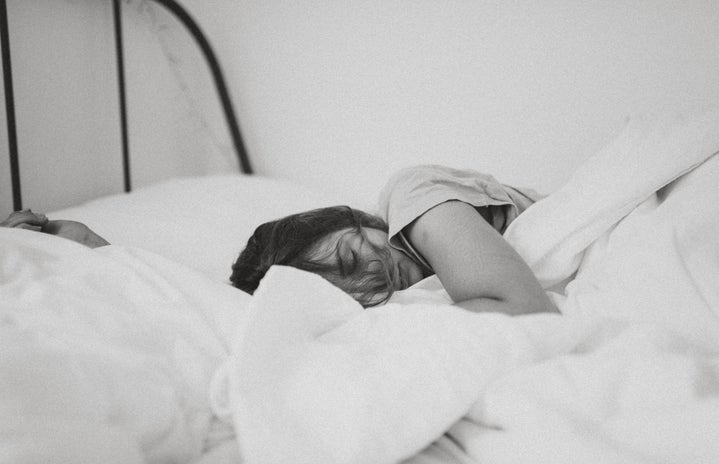I remember when I was in high school, I had the best sleeping habits. I used to fall asleep minutes after getting into bed. You don’t realize how lucky you are to be able to fall asleep easily until you can’t anymore. Unfortunately, the last 4 years of university have 100% screwed up my sleep schedule. From pulling all-nighters to taking midday naps (that I probably don’t deserve), it’s no surprise I have trouble resting well nowadays. And, unfortunately for me, my sleeping habits have somehow gotten even worse over the last year or so. I have had countless nights where I’ve stayed up until 4-6am without meaning to. Keeping that in mind, it’s no real surprise that I am exhausted most days. Because of this, I’ve realized how important rest is for an overall healthy lifestyle, so I’ve been trying to incorporate some new rules for myself when it comes to sleep.
If you’re dealing with the same issues as me, here are my tips and tricks on how to improve your sleeping habits:
1. Reduce/Eliminate Caffeine
While for many of us the concept of eliminating caffeine altogether seems like an impossible feat, at least reducing the amount you have in a day can definitely help you sleep better at night. You should try your best to completely avoid having any caffeine past 6pm (that goes for tea, coffee, energy drinks, etc.).
2. Have a Bedtime Routine
Creating a nightly routine before you go to bed teaches your body when it’s time to sleep. You can do things to prepare yourself for bed such as drink hot water/decaffeinated tea, have a bath, do your skincare routine or read a book. Make sure that your bedtime routine is relaxing.
3. Physical Exercise
Any kind of exercise, even light exercise, is helpful in tiring out your body. If you can get some exercise in every day you will for sure notice improvements with how quickly you fall asleep at night.
4. No Napping!
We all know that taking naps makes it harder for us to fall asleep at night, and yet we still do it. Try your best to stop napping during the day no matter how tired you may feel. Save the tiredness for night-time.
5. Scheduled Bedtime and Wake Up
Start a habit of going to bed at the same time each night. Also, try to wake up at the same time every morning, even though this will probably be very tiring at the beginning. Your body and brain will eventually catch onto the sleep pattern.
6. Make your Room a Nice Place to Be
Our sleeping conditions do actually have an impact on our sleep. First off, make sure that your pillows, mattress and blankets are comfortable and keep your body at the right temperature. Making sure your room is clean and tidy is supposed to also help improve sleep. I like putting essential oils into my diffuser right before bed to make the room smell pleasant and calm me down.
While these are just small changes to your everyday routine, if you keep up with them you will notice a big effect on your sleeping habits. If you find yourself struggling with getting a proper night’s rest, hopefully some of these tips I outlined will work for you!


